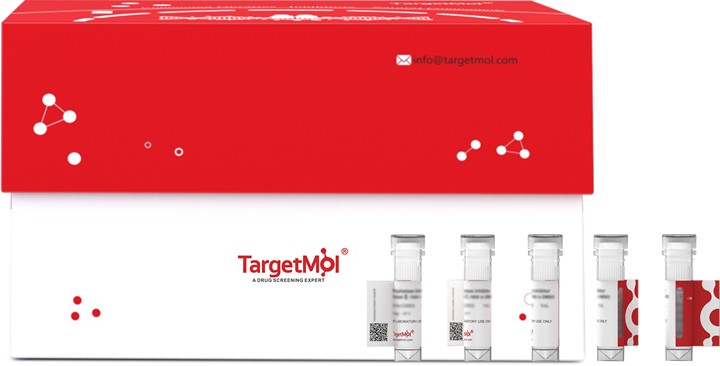- 全部删除
 您的购物车当前为空
您的购物车当前为空
ACOD1 Protein, Mouse, Recombinant (His & Myc)
Cis-aconitate decarboxylase that catalyzes production of itaconate and is involved in the inhibition of the inflammatory response. Acts as a negative regulator of the Toll-like receptors (TLRs)-mediated inflammatory innate response by stimulating the tumor necrosis factor alpha-induced protein TNFAIP3 expression via reactive oxygen species (ROS) in LPS-tolerized macrophages. Involved in antimicrobial response of innate immune cells; ACOD1-mediated itaconic acid production contributes to the antimicrobial activity of macrophages. Involved in antiviral response following infection by flavivirus in neurons: ACOD1-mediated itaconate production inhibits the activity of succinate dehydrogenase, generating a metabolic state in neurons that suppresses replication of viral genomes. Plays a role in the embryo implantation.

ACOD1 Protein, Mouse, Recombinant (His & Myc)
| 规格 | 价格 | 库存 | 数量 |
|---|---|---|---|
| 20 μg | ¥ 3,120 | 20日内发货 | |
| 100 μg | ¥ 9,630 | 20日内发货 | |
| 1 mg | ¥ 21,300 | 20日内发货 |
产品信息
| 生物活性 | Activity has not been tested. It is theoretically active, but we cannot guarantee it. If you require protein activity, we recommend choosing the eukaryotic expression version first. |
| 产品描述 | Cis-aconitate decarboxylase that catalyzes production of itaconate and is involved in the inhibition of the inflammatory response. Acts as a negative regulator of the Toll-like receptors (TLRs)-mediated inflammatory innate response by stimulating the tumor necrosis factor alpha-induced protein TNFAIP3 expression via reactive oxygen species (ROS) in LPS-tolerized macrophages. Involved in antimicrobial response of innate immune cells; ACOD1-mediated itaconic acid production contributes to the antimicrobial activity of macrophages. Involved in antiviral response following infection by flavivirus in neurons: ACOD1-mediated itaconate production inhibits the activity of succinate dehydrogenase, generating a metabolic state in neurons that suppresses replication of viral genomes. Plays a role in the embryo implantation. |
| 种属 | Mouse |
| 表达系统 | Baculovirus Insect Cells |
| 标签 | N-10xHis, C-Myc |
| 蛋白编号 | P54987 |
| 氨基酸序列 | MMLKSVTESFAGMIHGLKVNHLTDGIIRRSKRMILDSLGVGFLGTGTEVFHKVTQYSKIYSSNTSSTVWGRPDFRLPPTYAAFVNGVAVHSMDFDDTWHPATHPSGAVLPVLTALSEALPQIPKFSGLDLLLAFNVGIEVQGRLMHFSKEAKDIPKRFHPPSVVGTLGSAAAASKFLGLSLTKCREALAIAVSHAGAPIANAATQTKPLHIGNAAKHGMEATFLAMLGLQGNKQILDLGSGFGAFYANYSPEDLPSLDSHIWLLDQQDVAFKSFPAHLATHWVADAAAAVRKHLVTPERALFPADHIERIVLRIPDVQYVNRPFPDSEHEARHSFQYVACASLLDGSITVPSFHSQQVNRPQVRELLKKVKLEHPPDNPPSFDTLYCEISITLKDGTTFTERSDTFYGHWRKPLSQEDLRNKFRANASKMLCRDTVESLITVVEKLEDLEDCSVLTRLLKGPSVQDEASKLSSMSSFDHTTLPRFTNI |
| 蛋白构建 | 1-488 aa |
| 蛋白纯度 | > 85% as determined by SDS-PAGE. |
| 分子量 | 58.3 kDa (predicted) |
| 内毒素 | < 1.0 EU/μg of the protein as determined by the LAL method. |
| 缓冲液 | If the delivery form is liquid, the default storage buffer is Tris/PBS-based buffer, 5%-50% glycerol. If the delivery form is lyophilized powder, the buffer before lyophilization is Tris/PBS-based buffer, 6% Trehalose, pH 8.0. |
| 复溶方法 | Reconstitute the lyophilized protein in sterile deionized water. The product concentration should not be less than 100 μg/mL. Before opening, centrifuge the tube to collect powder at the bottom. After adding the reconstitution buffer, avoid vortexing or pipetting for mixing. |
| 存储 | Lyophilized powders can be stably stored for over 12 months, while liquid products can be stored for 6-12 months at -80°C. For reconstituted protein solutions, the solution can be stored at -20°C to -80°C for at least 3 months. Please avoid multiple freeze-thaw cycles and store products in aliquots. |
| 运输方式 | In general, Lyophilized powders are shipping with blue ice. Solutions are shipping with dry ice. |
| 研究背景 | Cis-aconitate decarboxylase that catalyzes production of itaconate and is involved in the inhibition of the inflammatory response. Acts as a negative regulator of the Toll-like receptors (TLRs)-mediated inflammatory innate response by stimulating the tumor necrosis factor alpha-induced protein TNFAIP3 expression via reactive oxygen species (ROS) in LPS-tolerized macrophages. Involved in antimicrobial response of innate immune cells; ACOD1-mediated itaconic acid production contributes to the antimicrobial activity of macrophages. Involved in antiviral response following infection by flavivirus in neurons: ACOD1-mediated itaconate production inhibits the activity of succinate dehydrogenase, generating a metabolic state in neurons that suppresses replication of viral genomes. Plays a role in the embryo implantation. |




